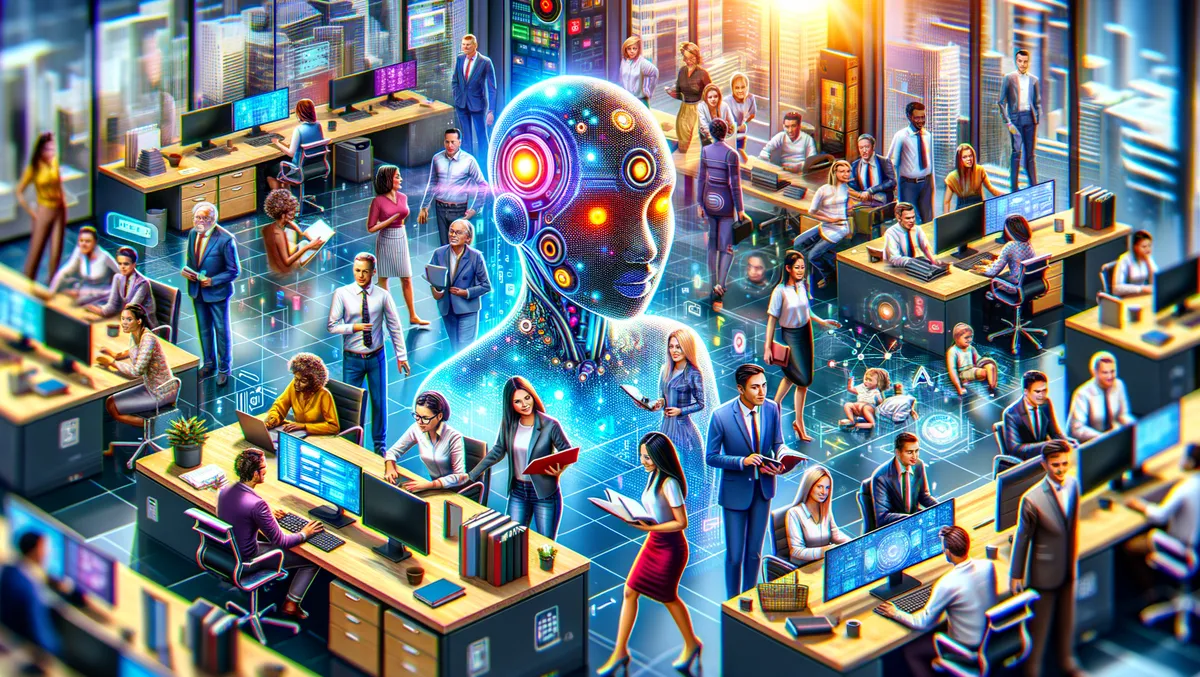
Australians increasingly adopting AI tools at work
A study by Fusion Digital reveals that 86% of Australian office workers use artificial intelligence (AI) in the workplace. Despite a quarter of global chief executives predicting that the deployment of generative artificial intelligence will drive a minimum of a 5% headcount reduction this year, the survey of more than 1000 Australian white-collar workers, explores the impact of AI on the workforce and its adoption rate amongst workers.
Of the 86% that utilise AI, most are employed at businesses with over 5,000 employees (93%), with adoption rates decreasing relative to company size. For example, small businesses have a lower adoption rate at 81%. When queried on generational usage, millennials lead the way with 90%, Gen Z follows at 82%, while baby boomers use AI the least, at 75%.
When it comes to preferences, 72% of those polled use ChatGPT the most in their workplace, followed by Google's Bard (39%) and Claude (27%). Interestingly, a mere 52% of ChatGPT users trust its results, making it one of the least trusted AI tools. It's also noteworthy to mention that a substantial 14% of employees have never used AI.
On average, Australian workers use AI tools for around 4.6 hours each week. This average goes up to 6.7 hours a week at larger corporations, equivalent to over 43 working days a year. The research suggests that the most effective way of obtaining high-quality data and information is to use both ChatGPT and Bard together, saving 69% of users at least 5 hours a week.
Some employees are secretive about their AI use, with 21% admitting to using AI at work without their employers' consent or knowledge. However, the majority (63%) are open about the tools they use. Large enterprises report the most transparency, with 83% of employees there being open about their AI use. This openness decreases in smaller businesses, with only 57% of staff revealing their AI use.
AI trust in the workplace is a divisive topic. Opinion is almost split down the middle, with 44% believing in the reliability of AI to generate accurate outputs, and 38% indicating that it's only occasionally reliable. Interestingly, more time spent using AI tools appears to positively influence trust, with 78% of those using AI for over 10 hours a week confident in the technology's accuracy. Confidence dwindles in those who use AI for only an hour or less, with only a 25% trust rate.
Responses to the survey also show the differences between generations, with millennials being the most AI-enthusiastic demographic. Surprisingly, Gen Z and the Baby Boomers share similar sceptical attitudes towards artificial intelligence.
On average, Australian employees are willing to spend over $700 a year on AI tools for productivity, with 65% of Western Australia willing to pay for AI tools, followed by South Australia and New South Wales both at 61%, Victoria at 60%, and Queensland at 57%.
In their concluding remarks, a Fusion Digital spokesperson emphasised the rapid pace of technological adaptation: "As digital marketers, we've seen first-hand the pace of change and adoption [...] the time for Australian professionals to get ahead of the AI revolution is now."
Looking forward, 40% of the workforce agree with Elon Musk that AI will have a societal impact. However, 33% hold the opposite view, with 11% uncertain about the impact of AI on society.


